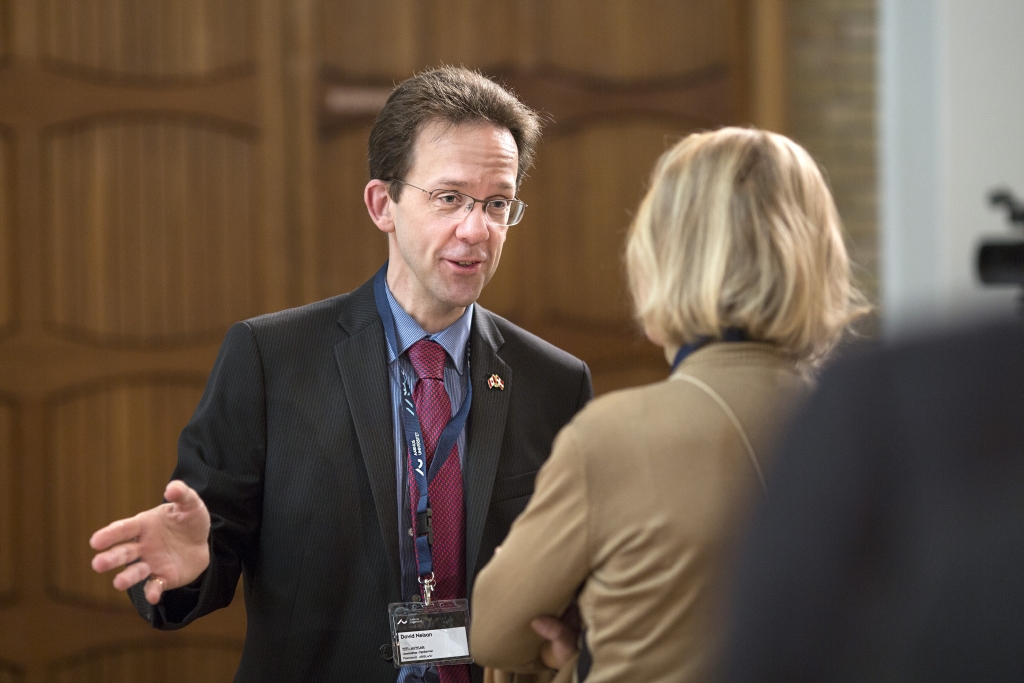Centre of excellence for the study of discrimination to open at Aarhus BSS
What is discrimination? Why is discrimination morally objectionable? Why do we discriminate and what can we do to prevent discrimination? These are questions that the center of excellence CEPDISC, scheduled to open in August 2020, is aiming to answer. CEPDISC has been recommended for a six-year centre establishment grant by the Danish National Research Foundation. The centre will be headed by Professor of Political Science Kasper Lippert-Rasmussen.

“CEPDISC aims to deliver research results that will be of significant interest to the general public. Hopefully, it will make people reflect on how to define discrimination and what they find problematic about discrimination. It could also help them find ways to reduce the amount of discrimination in society,” says Professor of Political Science Kasper Lippert-Rasmussen, who will head the new centre of excellence CEPDISC at Aarhus BSS.
“We live in a society that is becoming increasingly diverse and in which more and more discrimination issues arise. Questions related to discrimination are gaining increasing attention, and people are more likely to articulate situations that involve discrimination. Previously, discrimination was largely related to race and gender. Today, however, we are also talking about discrimination in relation to overweight people or to people’s level of attractiveness. This shows that more and more societal issues are being articulated through a lens of discrimination,” says Kasper Lippert-Rasmussen.
Apartheid in South Africa and women’s lack of voting rights in several parts of the world are classic examples of unequal treatment that is discriminatory. However, when a court acquits the wrongly accused and sentences the guilty party we have a clear-cut example of unequal treatment that is not discriminatory. In between these clear-cut examples, we find a grey area in which it is less clear what kinds of unequal treatment can be defined as discrimination. In these cases, the researchers are interested in ordinary people’s perceptions, which may differ from those of the researchers.
One example is the Royal Danish Theatre and its attempt to establish a discount scheme for non-ethnic Danes. As immigrant audiences were markedly underrepresented, the theatre tried to get more people with an immigrant background into the theatre by offering them tickets at a favourable price. This resulted in a public debate in which the theatre was accused of racial discrimination and saw itself forced to give up the discount scheme before it had even been introduced. But was it a case of racial discrimination? The theatre is already offering discounts to young people, the disabled and old-age pensioners. These kinds of discounts are normally not regarded as ageism or as discrimination against people who are not disabled.
Why do we discriminate?
This shows that different perceptions of discrimination exist. The first contribution of the new centre of excellence at Aarhus BSS will thus be a discussion of the concept of discrimination and an attempt to get closer to establishing a measurable definition of the concept. Such a definition is necessary if you want to explore whether discrimination is increasing in society and the consequences of discrimination.
Secondly, the researchers will explore the question of why people find discrimination morally objectionable. This could be in relation to ageism where elderly people placed at the back of the queue in the healthcare system because there is more to be gained from donating an organ to someone who is young and has more years left to live.
The third main question that CEPDISC is aiming to answer is why people discriminate and what can be done to prevent discrimination. People are not necessarily aware that they are discriminating. Often it happens unconsciously. If you ask people directly whether they are discriminating, they will often say no. However, when they are subsequently tested in experiments, it often turns out that they are in fact treating people unequally due to race, gender and other parameters. This is most likely due to a number of psychological mechanisms. If you live in an area with a large number of immigrants, this might influence your more or less unconscious attitudes and thus your potential discrimination of this particular group of people.
Long-term value for research environment at Aarhus BSS
CEPDISC will be part of the Department of Political Science at Aarhus BSS where the majority of the researchers at the centre are employed. In addition, the centre will draw on several international collaborations. These include an advisory board with researchers from institutions such as Harvard and the University of Oxford, collaboration centres at and researchers from the same institutions as well as Stanford and the Institute for Futures Studies in Stockholm, and an annual international conference where the centre will present its findings. Kasper Lippert-Rasmussen has studied discrimination for more than 10 years. His publications include Born Free and Equal? (Oxford University Press, 2013) and Affirmative Action: The Key Arguments (Oxford University Press) published in March next year.
“A centre of excellence grant is large as well as long term. To receive such a grant will thus have a lasting and valuable impact on Aarhus BSS and our research environment. It will increase our exposure - not least internationally - and provide us with the financial means to attract top researchers who will form relations with the school’s researchers and increase our recruitment of new top researchers now and in the future.
I’m delighted that the Danish National Research Foundation wish to support our academic efforts. This shows that we are part of the Danish research elite.
It’s also exciting that Kasper Lippert-Rasmussen is bringing together so many different academic fields in the study of discrimination. They will break new ground in terms of the methods used in this research field,” says Vice-dean for Research Per Baltzer Overgaard.
Head of Department Peter Munk Christiansen is also delighted with the grant: “ The grant is a recognition of the fact that within this academic field as well, the department measures up to the large and strong research environments abroad,” he says.
Facts:
- CEPDISC is short for The Center for the Experimental-Philosophical Study of Discrimination.
- CEPDISC has been recommended for a six-year centre establishment grant starting in August 2020. Now the parties will enter into contract negotiations.
- Professor of Political Science Kasper Lippert-Rasmussen will be the centre director.
- The following researchers are also affiliated with CEPDISC: Associate Professor Göran Duus-Otterström, Senior Associate Professor Marion Godman, Associate Professor Lasse Laustsen, Professor Michael Bang Petersen, Professor Kim Mannemar Sønderskov, Professor Lotte Thomsen and Assistant Professor Fabio Wolkenstein.
- CEPDISC combines perspectives from ethics and political philosophy with insights from social psychology and political psychology. This has not been done before.
- Among other things, CEPDISC will conduct studies using register data and general population experiments.
- Aarhus BSS already houses the centre of excellence CON AMORE (Center on Autobiographical Memory Research). In recent years, the school has also received funding from the Danish National Research Foundation for the centre of excellence CREATES (2007-2017) and Niels Bohr professorships for the Nobel Price winner Dale T. Mortensen and John McGrath.
Contact information:
Kasper Lippert-Rasmussen
Professor of political science, Aarhus BSS
Aarhus University
+45 60 65 87 80
lippert@ps.au.dk
Link to press release from Danish National Research Foundation
